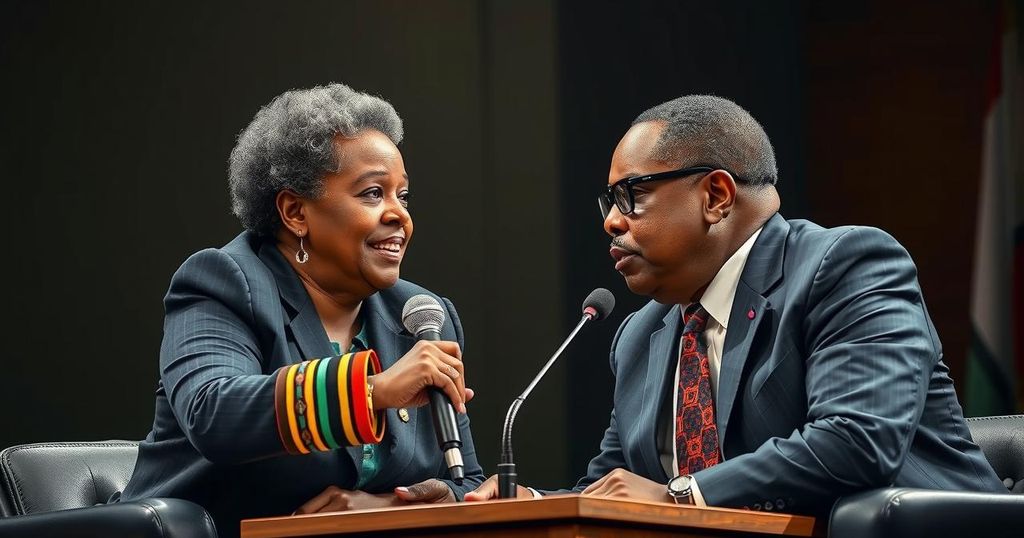Namibia’s Crucial Elections: Swapo’s Nandi-Ndaitwah Challenges IPC’s Itula

Namibia’s elections are underway, with Netumbo Nandi-Ndaitwah of Swapo vying to become the first female president amidst competition from Panduleni Itula of IPC, against a backdrop of unemployment and corruption. Voter turnout appears strong as citizens seek to influence the future of their nation.
Voting is currently taking place in Namibia, marking one of the most crucial elections since the nation attained independence from South Africa 34 years ago. The ruling South West Africa’s People’s Organisation (Swapo) is represented by Netumbo Nandi-Ndaitwah, who aspires to become Namibia’s first female president, succeeding the late Hage Geingob. However, the party faces significant challenges due to widespread unemployment, increasing poverty, social inequality, and allegations of corruption, which have diminished its popularity among voters.
Nandi-Ndaitwah’s most formidable opponent is Panduleni Itula from the Independent Patriots for Change (IPC), accompanied by 14 additional candidates. Long lines formed at polling stations, highlighting the public’s eagerness to participate in the democratic process as voting commenced on Wednesday morning at 07:00 local time and will remain open until 21:00.
Swapo has maintained political dominance since Namibia’s independence in 1990, necessitating a candidate to secure over 50% of the vote for a definitive win, otherwise, a run-off will occur between the leading candidates. Upon the polling’s initiation, Nandi-Ndaitwah encouraged all Namibians to exercise their voting rights, asserting that the decisions made today are crucial for shaping the upcoming five years of their lives. She is confronting an ingrained male-dominated political culture, yet brings extensive leadership experience garnered over a 25-year government career.
Panduleni Itula, a former dentist and attorney, previously garnered 29% of the votes in the 2019 election against Geingob’s 56%. After casting his vote in Windhoek, he asserted the significance of this day for Namibia’s democratic journey. Presently, Namibia is led by interim President Nangolo Mbumba, who assumed office following the passing of Geingob in February and is not contesting in this election. Political analysts predict that the attitudes of the nation’s youth, constituting over half of the electorate, may prove pivotal in determining the election’s outcome. Moreover, voters are also choosing new members of parliament, underscoring the weight of this electoral event in Namibian governance.
The Namibian elections represent a significant moment in the nation’s political landscape, potentially redefining its leadership after over three decades under Swapo’s rule. The election gains added importance as it is the first since the death of former President Hage Geingob, prompting a need for effective governance amid pressing socioeconomic issues. High unemployment rates, poverty, and inequality are critical concerns that have sparked discontent among the populace, challenging the ruling party’s grip on power. Additionally, the involvement of youthful voters will likely shape the election’s results, emphasizing the need for political parties to address the aspirations and concerns of this demographic.
The ongoing elections in Namibia highlight a critical juncture in the country’s political evolution. As Netumbo Nandi-Ndaitwah seeks to break gender barriers and lead the nation, she faces significant challenges from both her party’s declining support and the seasoned opposition led by Panduleni Itula. With the electorate’s engagement, particularly among the youth, Namibia stands at a crossroads for its democratic future, potentially leading to a significant transformation in its political landscape.
Original Source: www.bbc.com







